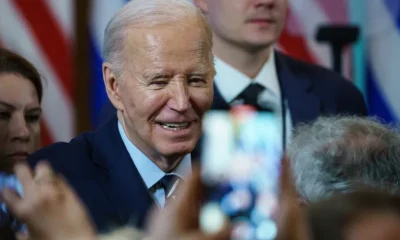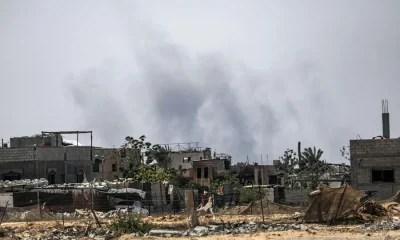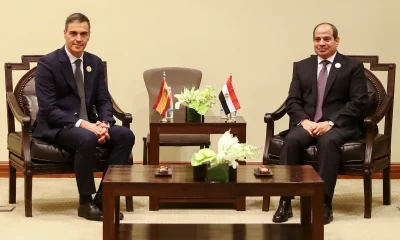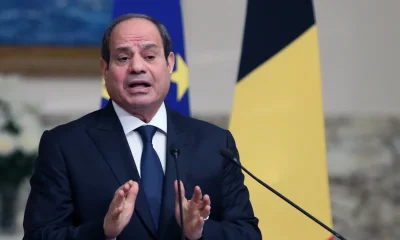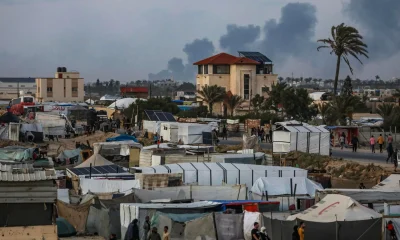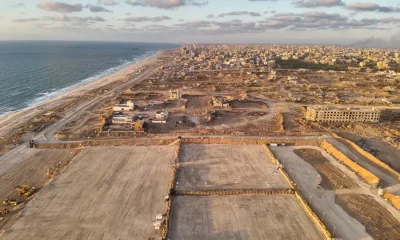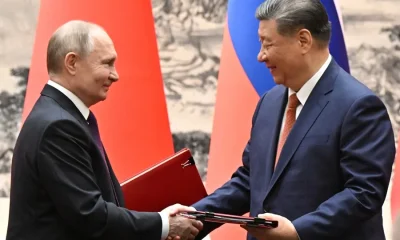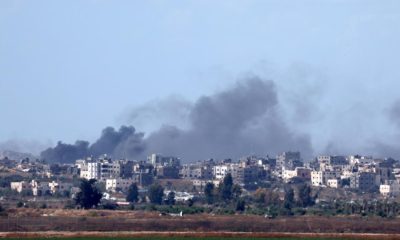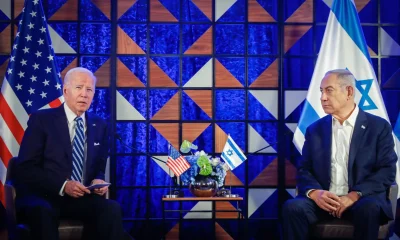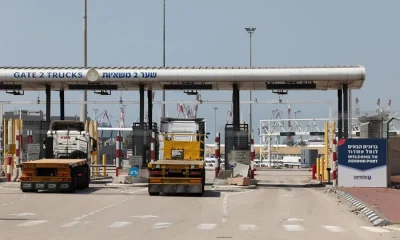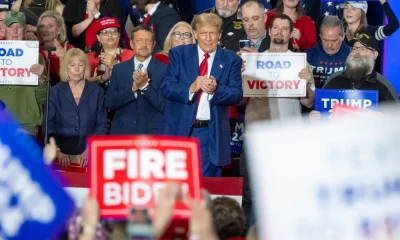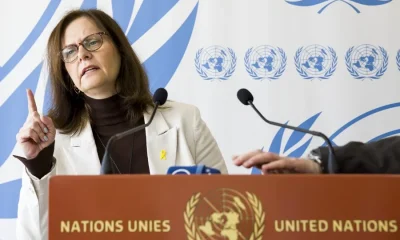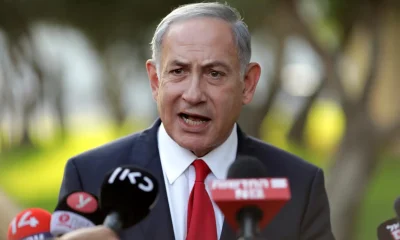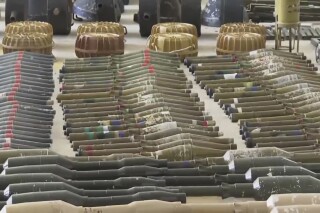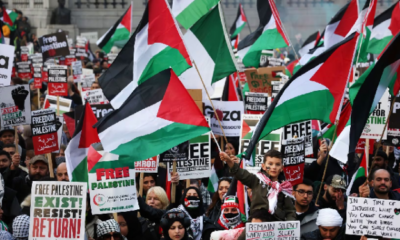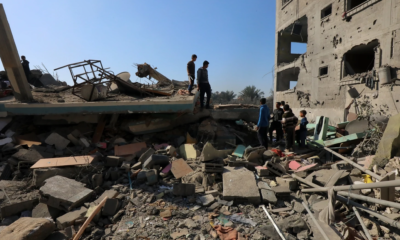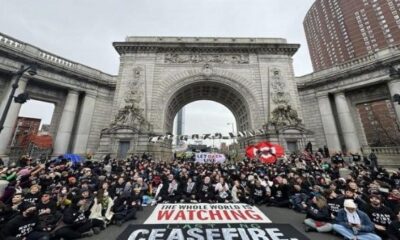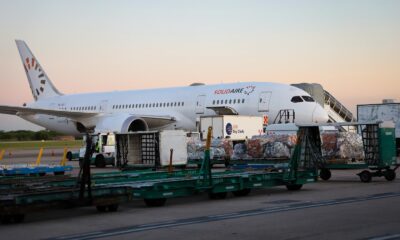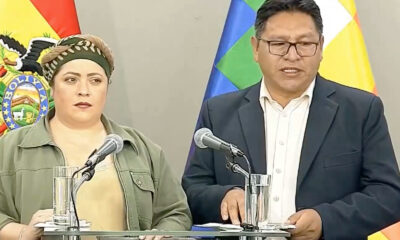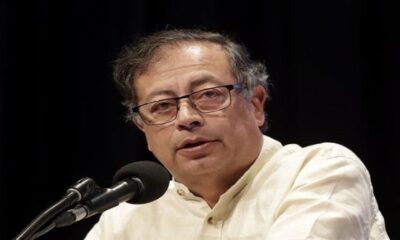International
Spanish chef José Andrés resorts to his influence and pain to change Israel’s policy in Gaza
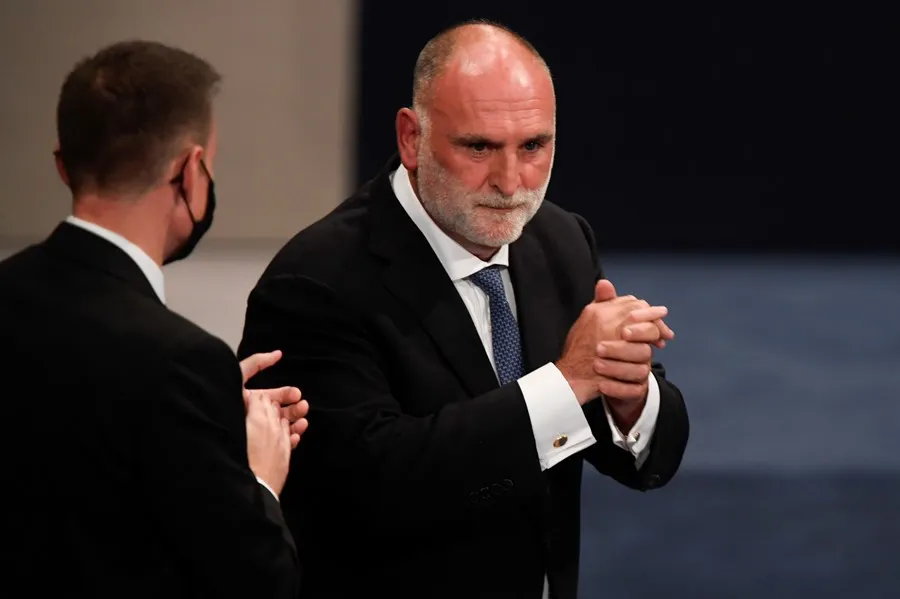
Spanish chef José Andrés has resorted to his influence in Washington and the immense pain he feels for the death of seven aid workers of his NGO, World Central Kitchen (WCK), so that the United States asks Israel for changes in its military strategy in the Gaza Strip.
When José Andrés speaks, Washington listens. He has important connections in political circles: the former president of the United States. Barack Obama awarded him the Medal of the Arts and Humanities in 2016, and earlier this year, the former president of the Lower House, Nancy Pelosi, nominated him for the Nobel Peace Prize.
The chef, who is also a U.S. citizen, has a close relationship with the president, Joe Biden, and both talked on the phone after the tragedy.
After that call, Biden issued one of the strongest statements to date against the Israeli government, accusing him of “not having done enough to protect humanitarian workers” since the beginning of the war and said he “have a broken heart” by the death of WCK aid workers in Gaza.
Since the moment of the tragedy, José Andrés has used the loudspeaker that gives him his position to question Israel’s policy and make it clear that this is not an isolated incident, since the beginning of the conflict 196 humanitarian workers have died and more than 33,100 Palestinians have asked for their lives.
Even more important, José Andrés has asked for an independent investigation into the attack on the WCK convoy and has urged the United States, Australia, Canada, Poland and the United Kingdom, countries of origin of the deceased aid workers, to join this call, although Washington has already refused to do so.
In an interview with the ABC network, broadcast this Sunday, José Andrés insisted on the need for an independent investigation and considered that Israel is waging a “war against humanity itself.”
“This is no longer about the seven men and women of WCK who perished in that unfortunate event. This has been happening for too long. It’s been six months attacking anything that seems to move,” said José Andrés.
“This doesn’t look like a war against terror. This no longer looks like a war to defend Israel. Actually, at this point, it seems that it is a war against humanity itself,” he added.
Therefore, he argued, it is imperative that a “deeper” investigation be carried out, in which the videos of the event and the radio conversations of the military involved can be analyzed.
“The one who has perpetrated the attack cannot investigate himself,” he stressed.
The Israeli Army has carried out its own investigation and, in its first conclusions published on Friday, it stated that the attack was the result of a chain of “serious mistakes” and assured that they fired believing that there were two Hamas “gunmen” inside the vehicles.
When asked about it, José Andrés was especially forceful. “Every time something happens, we can’t just include Hamas in the equation,” he said.
José Andrés has not only made this type of statement on the ABC network, but he also published an opinion article this week in The New York Times and has used his account on the social network X, with more than a million followers, to question Biden’s policies towards Israel.
The pressure on Biden is enormous, especially since the chef’s words come at a time when his policy towards Israel could cost him dearly in the November elections, especially in key states where the Arab community has an important weight, such as Michigan and Minnesota.
In this context, Biden spoke on the phone with Netanyahu on Thursday and gave him an ultimatum. For the first time, the US leader put conditions for his government’s support for the war in Gaza and warned that Washington’s policy would change if Israel did not take “concrete” measures to improve the humanitarian situation.
Hours later, Israel facilitated the entry of more humanitarian aid into Gaza and dismissed two commanders responsible for the attack on the co-operants.
The real test will now be the negotiations of the next few days in Cairo, in which the United States is putting pressure on Israel to reach an agreement with Hamas and achieve a ceasefire in the Strip, in exchange for the release of Israeli hostages.
Central America
Senator Van Hollen Meets with Deported MS-13 Member in El Salvador; Trump and Bukele React

U.S. Democratic Senator Chris Van Hollen, representing the state of Maryland, held a meeting in El Salvador with deported MS-13 gang member Kilmar Ábrego García, a member of the criminal group classified by the U.S. government as a terrorist organization.
“Kilmar Ábrego García, miraculously resurrected from the ‘extermination camps’ and ‘torture chambers,’ now sipping margaritas with Senator Van Hollen in the tropical paradise of El Salvador!” wrote President Nayib Bukeleon X (formerly Twitter), sharing photos of Van Hollen, Ábrego García, and a lawyer sitting together at a Salvadoran hotel.
The deported gang member is seen wearing a plaid shirt and a flat-brimmed cap, seated at a table with glasses and coffee cups. The senator also shared images of the meeting on his own social media accounts.
Bukele reaffirmed that Ábrego will remain in El Salvador and will not be returned to the United States.
“Now that his health has been confirmed, he has earned the honor of remaining under the custody of El Salvador,” Bukele added.
Former U.S. President Donald Trump criticized the senator’s meeting with Ábrego on Truth Social, calling Van Hollen “a fool” for advocating for Ábrego’s return to the U.S.
International
Pope Francis Appears for Easter Blessing, Calls for Peace and Religious Freedom

Pope Francis, still recovering from pneumonia, appeared on the balcony of St. Peter’s Basilica in the Vatican on Easter Sunday and, with a faint voice, wished a “Happy Easter” to the thousands of faithful gathered to celebrate the Resurrection of Christ.
A month after being discharged from a lengthy hospital stay, the presence of the 88-year-old pontiff had remained uncertain, with the Vatican not confirming his attendance ahead of time.
Eventually, the pope made a brief appearance in a wheelchair shortly after 12:00 p.m. (10:00 GMT) to deliver his traditional “Urbi et Orbi” blessing (“to the city and to the world”).
Although no longer wearing an oxygen cannula, the Argentine Jesuit relied on a close aide to read his Easter message, which touched on major global conflicts.
Francis condemned the “dramatic and unworthy humanitarian crisis” in Gaza and called for a ceasefire, while also expressing concern over the “growing climate of antisemitism spreading across the globe.”
He further emphasized the importance of religious freedom and freedom of thought, stating that without mutual respect, “peace is not possible.”
International
Thousands rally nationwide against Trump’s threat to U.S. democracy

Thousands of protesters gathered on Saturday (April 19, 2025) in major cities like New York and Washington, as well as in small communities across the United States, in a second wave of demonstrations against President Donald Trump. The crowds denounced what they view as growing threats to the country’s democratic ideals.
In New York City, demonstrators of all ages rallied in front of the Public Library near Trump Tower, holding signs accusing the president of undermining democratic institutions and judicial independence.
Many protesters also criticized Trump’s hardline immigration policies, including mass deportations and raids targeting undocumented migrants.
“Democracy is in grave danger,” said Kathy Valyi, 73, the daughter of Holocaust survivors. She told AFP that the stories her parents shared about Adolf Hitler’s rise to power in 1930s Germany “are happening here now.”
In Washington, demonstrators voiced concern over what they see as Trump’s disregard for long-standing constitutional norms, such as the right to due process.
-

 International4 days ago
International4 days agoArsenal stun Real Madrid at the Bernabéu to reach Champions League semifinals
-

 Central America3 days ago
Central America3 days agoNicaraguan Exiles to Mark 7th Anniversary of 2018 Protests with Global Commemorations
-

 International3 days ago
International3 days agoDominican ‘False Hero’ Arrested for Faking Role in Nightclub Collapse That Killed 231
-

 International4 days ago
International4 days agoBogotá residents line up for yellow fever vaccine amid national alert
-

 International2 days ago
International2 days agoACLU seeks emergency court order to stop venezuelan deportations under Wartime Law
-

 International4 days ago
International4 days agoDeSantis’ immigration crackdown sparks alarm in Venezuelan Communities in Doral
-

 Central America2 days ago
Central America2 days agoUN complaint filed against Costa Rica over detention of migrant children
-

 International4 days ago
International4 days agoMexico refuses to restore ties with Ecuador while Noboa remains in office
-

 International18 hours ago
International18 hours agoThousands rally nationwide against Trump’s threat to U.S. democracy
-

 Central America37 mins ago
Central America37 mins agoSenator Van Hollen Meets with Deported MS-13 Member in El Salvador; Trump and Bukele React
-

 International39 mins ago
International39 mins agoPope Francis Appears for Easter Blessing, Calls for Peace and Religious Freedom
















